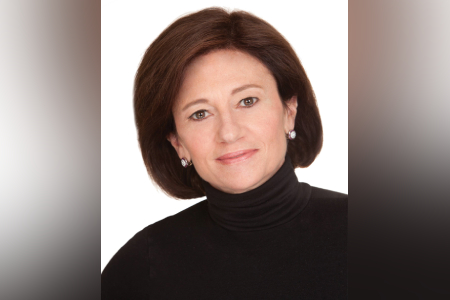Inflation fight is working, but worries about pressure on banks surface

The Federal Reserve on Wednesday raised its key interest rate by a quarter point as it continues to fight inflation – an action taken despite the potential the move could further add pressure in the banking industry.
Reaction to the news abounded.
Michele Raneri (pictured top), vice president and head of US research and consulting at TransUnion, posited the move as one implemented to further stave off inflation. “The fact that the Federal Reserve has decided to once again raise rates, albeit only 25 basis points, serves as further evidence that despite the consideration warranted to other real-time financial developments, and some positive signs in recent inflation reports, the Fed believes work remains to be done,” she said.
What impact could the rate hikes have?
Borrowers will feel the pinch, she suggested: “From a consumer credit perspective, the impact of further rate hikes will likely continue to be felt by borrowers, particularly in industries such as mortgage and credit cards. In this high interest rate environment, consumers are advised to continue paying down as much higher interest debt as they can, continue paying bills on time, and work to keep their personal financial and credit profiles as strong as they can be.”
Mike Fratantoni (pictured right), senior vice president and chief economist at the Mortgage Bankers Association, had a similar reaction. He noted the Fed’s fight in stomping out inflation appears to be working.
“Even with the heightened financial market volatility stemming from recent bank failures, the FOMC [Federal Open Market Committee] decided at its March meeting to increase the federal funds target another 25 basis points,” he said. “However, this was a dovish hike, as the commentary and economic projections suggest we may be at or near the peak fed funds rate for this cycle.”
What happens to banks when rates rise?
Concern over the impact this may have on the banking industry lingers – particularly given the sudden collapse of Silicon Valley Bank on March 10 and Signature Bank in New York just two days later. Pundits worry consumers may withdraw their funds from more regional banks in the future in the wake of the two bank failures.
It’s widely believed that the Fed opted to raise the rate minimally given the bank failures earlier this month. Federal Reserve chair Jerome Powell suggested as much at a press conference: "Before the recent events, we were clearly on track to continue with ongoing rate hikes,” he said. “In fact, as of a couple weeks ago, it looked like we'd need to raise rates over the course of the year more than we expected."
He then alluded directly to the bank failures that sent shock waves through the industry, detailing the likely impact: "The events of the last two weeks are likely to result in some tightening of credit conditions for households and businesses and, thereby, weigh on demand on the labor market and on inflation," he said.
"In principle, as a matter of fact, you can think of it as being the equivalent of a rate hike, or perhaps more than that. Of course, it's not possible to make that assessment today with any precision whatsoever," he said.
Banking concerns notwithstanding, the focus now is on curbing inflation, which “is still quite high, but it is slowing,” according to Fratantoni. While the job market is still quite strong, it is weakening, as evidenced by slowing wage growth. “Coupled with the advent of much tighter financial conditions after the events of the past couple of weeks, we are anticipating a much slower economy over the next few quarters — which should further bring down inflation per the Fed’s goal.”
He predicted mortgage rates would go down because of the Fed’s move: “Homebuyers in 2023 have shown themselves to be quite sensitive to any changes in mortgage rates,” he said.
“With this move from the Federal Reserve, MBA is holding to its forecast that mortgage rates are likely to trend down over the course of this year, which should provide support for the purchase market. The housing market was the first sector to slow as the result of tighter monetary policy and should be the first to benefit as policymakers slow – and ultimately stop – hiking rates.”
Are interest rates expected to drop again?
Prior to the rate increase, Melissa Cohn (pictured below) – regional vice president of William Raveis Mortgage – marvelled at the volatility of the market: “Mortgage rates started to fall but we continue to see inflation figures showing that the rate of inflation is not abating at the pace the Fed would like to see it abating,” she said.

“In fact, it's much stronger than they would like. And as a result, mortgage rates [and] bond yields have gone up, and mortgage rates have gone up nearly three-quarters of a percent over the course of the past couple of weeks. It's been crazy.”
However, she agreed that mortgage rates would come down before long: “It’s not a question of ‘if,’ it's really a question of ‘when,’ and our timeline has been thrown off. As such, it may be best to relax, keep an eye on the market, and remember that everything is transitory — more favorable conditions will reappear at some point. It’s just a matter of being patient.”



